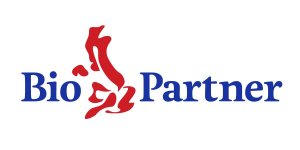
SANIFIT 
Sanifit offers a new approach for calcification disorders. Sanifit´s lead Product (SNF472) for the reduction of calcification in dialysis patients is entering Phase I clinical trials. For the dental field OTC products were developed and are being out-licensed. The international management team has proven track record and long industry experience. Sanifit operates from Switzerland and Spain
Scancell Holdings Plc.
Scancell is an AIM listed UK based company developing novel therapeutic vaccines for the treatment of cancer based on its groundbreaking ImmunoBody® and Moditope™ technology platforms. Scancell’s first cancer vaccine SCIB1 is a DNA vaccine being developed for the treatment of melanoma and is in Phase 2 clinical trials.
Treating cancer by vaccination allows small non-toxic doses of a vaccine to be administered to a patient, stimulating an immune response. Effective cancer vaccines need to target dendritic cells to stimulate both parts of the cellular immune system; the helper cell system where inflammation is stimulated at the tumour site; and the cytotoxic T-lymphocyte or CTL response where immune system cells are primed to recognise and kill specific cells.
A limitation of many cancer vaccines currently in development is that they cannot specifically target dendritic cells in vivo. Several groups have demonstrated successful vaccination by growing dendritic cells ex vivo, pulsing them with tumour antigens and re-infusing them. However, this procedure is patient specific, time consuming and expensive. Scancell has developed its breakthrough patent protected ImmunoBody® technology to overcome these limitations.
The Immunobody® technology can be adapted to provide the basis for treating any tumour type and may also be of potential utility in the development of vaccines against hepatitis, HIV and other chronic infectious diseases.
Scancell has also identified and patented a series of modified epitopes that stimulate the production of killer CD4 that destroy tumours without toxicity. The Moditope™ platform could have a profound effect on the way that cancer vaccines are developed.
Richard Goodfellow
CEO
Selcia Ltd 
Selcia Ltd., headquartered in Ongar, Essex, UK and with a branch in Hopkinton, Massachusetts, is a leading worldwide provider of contract research services. Selcia operates two divisions, Selcia Discovery and Selcia Radiochemistry. Whilst Radiochemistry specializes in 14C GMP radiolabelling, Selcia Discovery provides integrated small molecule drug discovery to pharmaceutical and biotech clients. Besides general medicinal chemistry and biology capabilities applicable across all target classes, Selcia Discovery has a particular strength in three unique and highly synergistic technologies: (1) medicinal chemistry on complex natural products, (2) capillary electrophoresis-based fragment and natural product screening, (3) peptidyl-prolyl isomerase targets (cyclophilins, FKBPs, Pin1, together called PPIases). Whilst relatively neglected by pharmaceutical companies in the past, understanding of the involvement of PPIases in many diseases is currently emerging. All PPIase inhibitors presently in clinical use or in development are natural products, natural product derivatives or have structures inspired by natural products.
The combination of these technologies has enabled Selcia to deliver several clinical PPIase inhibitors to clients, but has also generated IP for Selcia, which was recently demerged into a new company, Mitopharm Ltd. Mitopharm is in advanced license negotiations for a breakthrough drug in the field of acute and chronic neurodegenerative diseases. Other applications in the fields of chronic inflammatory diseases, oncology, COPD, and virus infections will be developed by Mitopharm either via investment or via joint R&D programs with pharmaceutical companies.
Dr Hans Fliri
ChairmanSimon Bury

Shield Therapeutics AG 
Richard Jones
CFO
SOM Biotech 
SOM Biotech has developed a proprietary Drug Repurposing technology platform for discovery of new therapeutic indications for given drugs, which we are offering to partners for expanding their drug pipeline.
During the last 34 months we have validated 41 new indications, with 18 positive hits (43%), of which 3 cover clear medical need indications:
SOM0777 for the treatment of Glioma, already licensed to Argon Pharma and Draconis Pharma.
SOM0226 for the treatment of TTR-Amyloidosis. Orphan Disease. Phase II planned for 1Q 2013.
SOM0606 for the topical treatment of Psoriasis, in preclinical development. Phase II expected for 4Q 2013.
25 more repurposing programs per year are running to file the advanced company pipeline.
SR One
SR One is the independent corporate venture capital arm of GlaxoSmithKline. The firm invests globally in emerging life science companies that are pursuing innovative science which will significantly impact medical care. Since 1985, SR One has invested over $680 million in the biotech space and has a current portfolio of approximately 30 private and public companies. For more information, visit www.srone.com
Deborah Harland
General PartnerSuppreMol GmbH 
SuppreMol, a privately held biopharmaceutical Company, is developing novel proteins to treat autoimmune diseases. SuppreMol has developed a novel therapeutic concept for the treatment of autoimmune diseases that relies on naturally produced Fc gamma receptors (FcγRs). The Company was founded in 2002 as a spin-off from the Max Planck Institute of Biochemistry.
The Company is developing SM101 for the treatment of Primary Immune Thrombocytopenia (ITP) and Systemic Lupus Erythematosus (SLE) in Phase II clinical trials. SM101 is designed to be a specific, early onset, long lasting and well tolerated treatment for autoimmune diseases such as ITP, SLE, Rheumatoid Arthritis (RA) and Multiple Sclerosis (MS).
Further building its platform of selective immunoregulators, SuppreMol is working on antibody programs targeting Fc receptors and other immunomodulatory molecules for alternative treatment strategies in autoimmune conditions.



